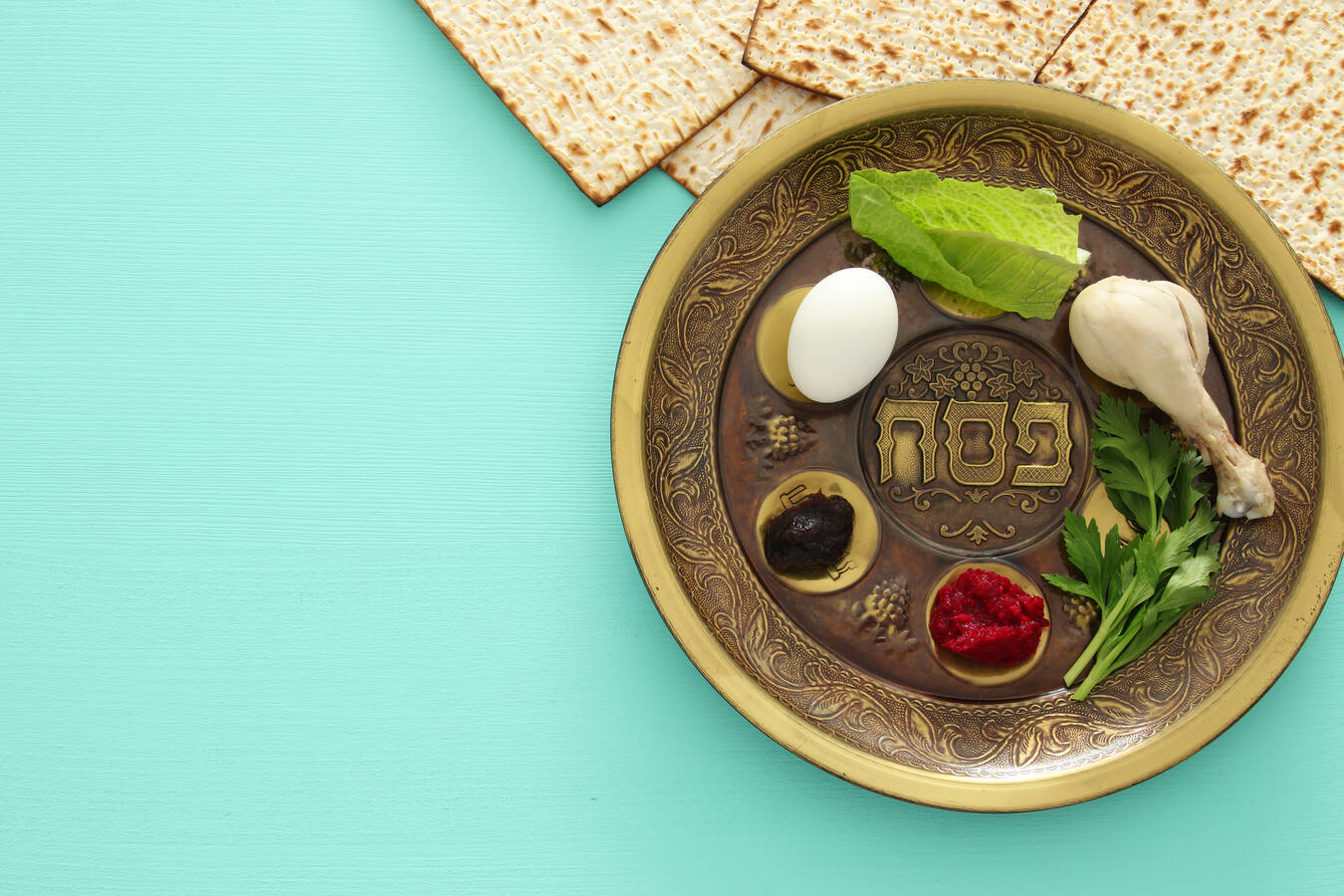I am a Catholic who is married to a Jewish woman. Both complicating and enriching things, my wife is also a rabbi.
Last year, our synagogue co-hosted a Passover Seder with and for the people of St. Mark A.M.E. church in Milwaukee, where we live. We met in the fellowship hall of their church, which looked like every other church basement I have ever seen: windowless, with fluorescent lights, metal folding chairs and a busy kitchen smelling of food both new and familiar. Both congregations cooked that day: Some prepared for the ritual parts of the meal; others made dishes to go alongside. We started out standing together in prayer, led by my wife and the female pastor of the A.M.E. church, who has become our good friend. Then we sat on the folding chairs, deliberately mixing the congregations so as to allow attendees to meet new people. We were African-American Christians, Jews and one Catholic.
The Seder is a meal, and you are supposed to take your time at it. We did. We talked about slavery, exodus, redemption and liberation from both the Jewish and African-American Christian experience. Both communities have a painful history of experiencing these biblical ideas firsthand. In Milwaukee, we live with a terrible history of segregation, discrimination and racial conflict. I think we used our Seder well; people spoke freely and honestly but still allowed sensitivity and tact to rule the evening.
I would like to see every community have such a rich experience around a Passover Seder. But I still have cautions to raise.
When it comes to Christians having Passover Seders, problems can arise from finding too little difference between the faiths.
I was recently talking with a Christian professor who teaches world religions to undergraduates at a large university. He told me most of his students think Jewish practices today are just like what they have read about in the Old Testament in Sunday school. “They assume animal sacrifices are still going on,” he said, and he was serious. “That’s why they think Jews and synagogues are scary.” I am frightened by how little we seem to know about each other.
At times, this ignorance can lead Christians to see a deep gulf between followers of Jesus and our Jewish brothers and sisters. The familiar proper nouns “Old Testament” and “New Testament” can lead Christians into bad theology, and they tell each other that the “old” has been replaced by the “new.” This has not been the teaching in the Catholic Church, at least since the Second Vatican Council.
But when it comes to Christians having Passover Seders, problems can arise from finding too little difference between the faiths. This problem has plagued and followed us since the fourth century, when Emperor Constantine made Christianity legal in the Roman Empire. Since then, in most parts of the world, there has been a sense—at the risk of putting it crudely—that “we” won. So we are in a position to pick and choose those bits and pieces from other religious traditions that appeal to us, as if they are ours to plunder. It is not always “plundering”; sometimes we do this out of deep appreciation and a desire to learn. But we have to be respectful. As Christians have become more familiar and neighborly with people of other religious traditions, we have extended that familiarity to appreciation, and sometimes appreciation becomes appropriation.
As Christians have become more familiar and neighborly with people of other religious traditions, we have extended that familiarity to appreciation, and sometimes appreciation becomes appropriation.
This happens, for example, when we decide that a Native American ritual would work nicely inside a Christian ritual or when we add a practice from Buddhism into our Christian prayer life. These appropriations are usually harmless to the other religious traditions but not always so. Sometimes it can feel as if something precious has been stolen.
I remember asking a rabbi friend 20 years ago why he was troubled by Christians performing Passover Seders in their homes. Isn’t it an opportunity for Christians to come to understand better the Jewish roots of their faith? He responded: “It has to be done with sensitivity and a sense of proper boundaries. Otherwise, it’s offensive. How would you feel if I decided the Catholic Mass was lovely, and I started incorporating a bit of consecrated host into my Kabbalat Shabbat services? If you take ‘just a bit’ of my Jewish practice and incorporate it as your own, it’s like me taking a nibble of the host.” He was overstating to make his point, but it worked. Since then, I have sought to be scrupulous when adopting or observing religious practices from traditions not my own.
Christians will sometimes host Passover Seders in homes or churches. In most cases, this does not mean that they are observing the eight days of Passover along with their Jewish friends and neighbors. Rather, Christians usually put on a Seder out of a desire to recall, mark or celebrate the Jewish origins of Christian faith.
If you are hosting or participating in a Seder, you should do so by honoring the order and meaning of this ritual meal that is not yours.
The evening of Maundy Thursday—the day before Good Friday—is the most common day and time for Christians to host a Seder. This is because there is widespread belief that the Last Supper, which took place on the evening before Jesus was crucified, was a Seder meal. The Gospels say that Jesus was in Jerusalem for Passover.
Sometimes a local rabbi will be invited to lead the Seder, and in such cases, my concerns of misappropriation are calmed. The rabbi will know what to do. But when there is not a rabbi or an experienced Jewish leader for the Seder, then the Christians who are doing this Jewish ceremony need to approach this Jewish tradition with understanding and nuance.
First, we should not appropriate the symbols and texts to Christian uses. For example, some Christians want to say that the matzo (unleavened bread) that is central and symbolic in a Jewish Seder is representative of Jesus’ body. The Gospel of John suggests this, when Jn 1:29 refers to Jesus as the “Lamb of God.” But this is to radically change the meaning of the matzo as understood in a Seder. If you are hosting or participating in a Seder, you should do so by honoring the order and meaning of this ritual meal that is not yours. Drawing parallels is acceptable; go ahead and talk about the Christian ways of understanding unleavened bread, including how Christians use unleavened bread sacramentally. But do not simply re-appropriate the Jewish symbol and texts.
The same goes for the wine that is part of a traditional Seder. Four cups of wine are drunk to remember different teachings of the Seder. Christians might want to say that the wine represents the blood of Christ on the cross. But it doesn’t. At least it does not in the context of a Jewish Seder. Again, discussing parallels is fine, but Christians should not simply “take over” the symbolism and change it. Allow yourself to learn about a Seder in the context of the original Passover story in Judaism.
This, as in all things, should be guided by the witness and teaching of Jesus. How would you like it if someone took some bits of your religious tradition and turned them into something else? Remember Luke 10. Jesus asks a lawyer: “What is written in the law? What do you read there?” The lawyer replies with excellent Torah: “You shall love the Lord your God with all your heart, and with all your soul, and with all your strength, and with all your mind; and your neighbor as yourself.” Yes, Jesus says. “Do this, and you will live.”










